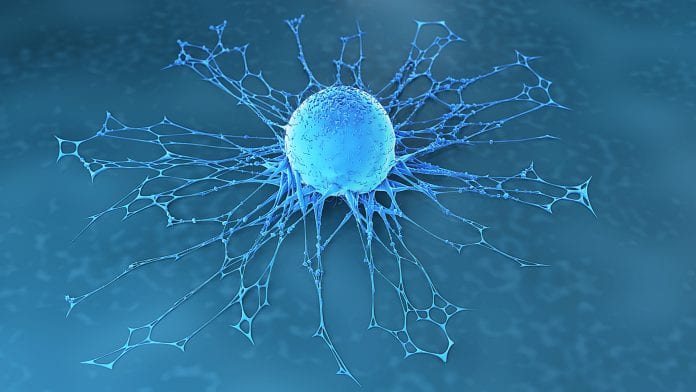
Halting the energy supply to certain cells can help to stop the spread of cancer, researchers have discovered.
A study by scientists from the Translational Medicine Laboratory at the University of Salford has discovered that cancer spreading cells are the ‘fittest’ and therefore cutting off their fuel supply can effectively prevent the spread of cancer.
The research was co-authored by Dr Marco Fiorillo, Professor Federica Sotgia and Professor Michael P Lisanti at the University of Salford, and was published in the Nature journal, Cell Death and Differentiation.
Cancer spreading is referred to as ‘metastasis’. Metastatic cancer cells are resistant to cancer chemotherapy and radiation treatment, thus creating an urgent medical need to stop the spread of cancer cells.
Identifying the strongest cells
The researchers identified that metastatic cancer cells require a vast amount of energy and represent the ‘fittest’ cancer cells – explaining why they are drug-resistant. By using a special sensor to detect adenosine triphosphate (ATP)- the energy-carrying molecule found in the cells of all living things- the scientists were able to isolate the strongest cancer cells.
ATP-high cells were identified as the most aggressive, and almost five times more metastatic.
Professor Michael P Lisanti, MD-PhD, Chair of Translational Medicine, said: “This simple idea has been right under our nose, all the time. ATP is a new marker for aggressive cancer cells and treatment failure”.
Professor Federica Sotgia, PhD, Chair of Cancer Biology and Ageing, stated that: “Ultimately, ATP-depletion could prevent metastasis, by directly cutting off cancer’s fuel supply.”
One of the most effective ways to cut off the energy supply is to target the producer of ATP.
Fiorillo, Sotgia, Lisanti and colleagues used an FDA-approved drug that was initially designed to inhibit energy production in bacteria.
The drug, Sirturo, targeted the fuel supply of cancer cells and blocked metastasis by nearly 85%. The drug had no effects on normal cells, thereby minimising side effects. It found that treatment with Sirturo caused a ‘power failure’, but only in cancer cells.
Sirturo is already FDA-approved, with these findings paving the way for new cancer clinical trials.









